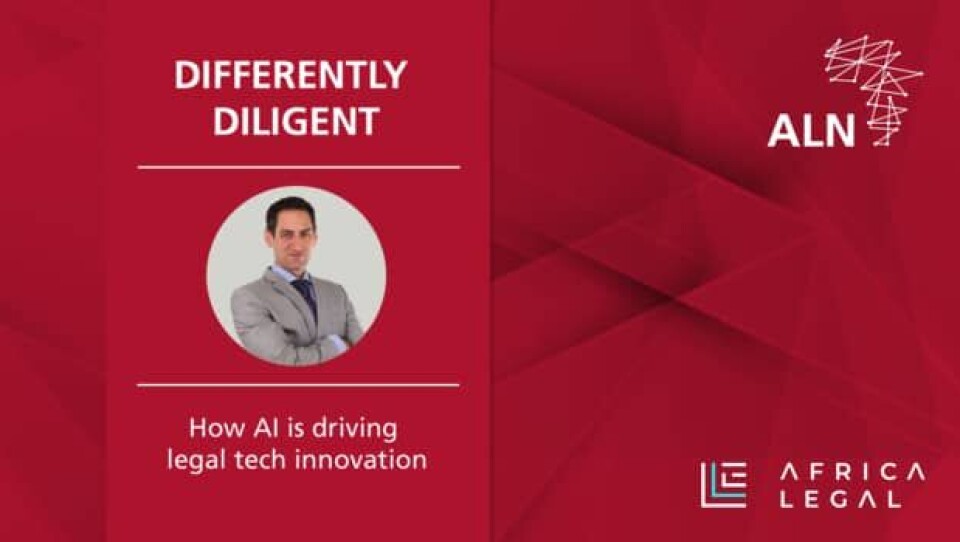Lawyers across the world should embrace legal technology and the way tech solutions are adjusting the workflow in legal firms, rather than being afraid of change, says Dominic Rebelo.
“The reality is that a lot of the mundane work that lawyers do, and for which we charge fees that historically have been quite high, is going to become commoditised,” said Rebelo, a partner at ALN Kenya | Anjarwalla & Khanna. “Commoditised work is inevitably going to be done by computers rather than human beings. So, there’s going to be a big chunk of legal work that is no longer going to be available to the bulk of the legal profession. But that doesn’t mean there aren’t opportunities on the flipside for lawyers to generate more work.”
Rebelo points to the increasing use of tech-enabled solutions for M&A and large transaction work, which help reduce the massive amount of routine work traditionally required for due diligences and other steps, and allow lawyers to focus on adding greater value for clients.
“I wouldn’t say it’s vital yet, and there is still a lot of M&A that carries on without any tech-enabled solutions, but it is becoming more and more prevalent,” he commented. “If you look at the life cycle of an M&A deal, you can split it into a few stages: your initial due diligence, your transaction documentation, and your conditions precedent and closing process.”
There are now tech-enabled solutions across all those stages, where most steps can be automated, and Rebelo believes within the next five to ten years it will “become completely standard” for any M&A law firm to be using all of those tech processes, with far less manual labour.
AI-based software such as Kira and Luminance can review all the documents in a due diligence and pull out the clauses that lawyers need to review, while learning to spot not just specific words, but also relevant structures in sentences and paragraphs. “It learns to spot things a normal word search wouldn’t, and that really makes a big difference for large due diligences,” explained Rebelo.
Automated platforms such as Clarilis allow lawyers to generate complex first-draft documents in minutes, while technology solutions such as Legatics enable deal teams to collaborate on and close deals in an interactive online environment.
“What that means for lawyers is we’re moving from a position of needing a big team on every M&A transaction, to using a smaller team of higher-skilled individuals, and they’re much more involved in the negotiation and difficult parts of the transaction, and spend less time on the routine work which was a big cost to clients.”
Rebelo heads the innovations team at Anjarwalla & Khanna, a firm that practises what it preaches in terms of embracing the legal tech revolution. Three years ago they established an incubator for legal tech entrepreneurs in Kenya, and they also have their own in-house coders creating solutions where they can’t find what they want on the market.
“It’s quite incredible how quickly new products have come up and how they are changing various facets of the law,” commented Rebelo. “There’s so much going on and things are moving so rapidly, that unless you are keeping up with it, you are getting left behind.”
To learn more about the value of legal technology register for Africa Legal and Liquid Labs online course, Leveraging Off Legal Technology to Grow your Firm
To join Africa Legal's mailing list please click here

